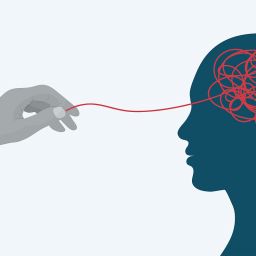
What to Expect from a Holistic Doctor for Autoimmune Disorders
When it comes to autoimmune disorders, conventional treatments often focus on suppressing the immune system with medications, but these solutions can come with side effects and don’t always address the root causes. A holistic doctor for autoimmune disorders offers a different path—one that focuses on treating the whole person to restore balance and reduce flare-ups naturally.
Holistic care involves identifying underlying contributors to autoimmune conditions, such as inflammation, gut health issues, and chronic stress. By integrating nutrition, lifestyle changes, mental health support, and natural supplements, a holistic approach works to strengthen the body’s ability to heal itself. Patients also benefit from personalized care plans tailored to their unique biochemistry and lifestyle, promoting sustainable improvements rather than temporary symptom relief.
How a Holistic Doctor Can Help Manage Autoimmune Conditions
For those seeking alternatives or supplements to conventional medicine, working with a holistic doctor provides a comprehensive strategy to manage autoimmune disorders effectively. By focusing on the interplay between physical, mental, and emotional health, holistic care offers a more balanced way to achieve long-term well-being.
1. Nutritional Therapy and Micronutrient Support
Many autoimmune conditions are linked to nutrient deficiencies that impair immune regulation. A holistic doctor can identify and address these gaps through dietary changes and supplementation. For example, vitamin D plays a crucial role in immune function, while omega-3 fatty acids help reduce inflammation. Probiotics and prebiotics are also used to improve gut health, which is essential since gut imbalances are known to trigger autoimmune flare-ups. Anti-inflammatory diets, such as the Autoimmune Protocol (AIP) or Mediterranean diet, are often recommended to calm the immune system naturally.
2. Supporting Gut Health
The gut-brain connection is a critical component of holistic autoimmune care. Leaky gut syndrome, where toxins and undigested particles enter the bloodstream, can exacerbate autoimmune responses. Holistic doctors work to restore gut integrity through dietary interventions and supplements like glutamine and probiotics to reduce systemic inflammation and support immune balance.
3. Managing Stress and Emotional Health
Chronic stress is a common trigger for autoimmune disorders. A holistic doctor integrates stress-reduction techniques such as mindfulness, yoga, and emotional therapy to improve mental well-being. By addressing emotional health, patients are better equipped to manage the psychological strain that often accompanies chronic illness.
4. Natural Supplements and Hormonal Balancing
Autoimmune disorders can disrupt hormone levels, leading to further complications. Holistic doctors may incorporate bio-identical hormone replacement therapy (BHRT) or herbal supplements to regulate hormones and improve the body’s response to inflammation. Additionally, adaptogenic herbs like ashwagandha and turmeric are often used to support immune function and manage stress naturally.
Managing Autoimmune Disorders During Flare-Ups: Holistic Strategies for Relief
Flare-ups in autoimmune disorders can be overwhelming, but holistic strategies can offer effective relief by calming the immune response and reducing inflammation. Rest and stress management are crucial—techniques like mindfulness and breathing exercises can lower cortisol levels, which are known to worsen symptoms during flare-ups. Gentle physical activities, such as yoga or stretching, help maintain mobility without overburdening the body ..
Diet modifications during flare-ups are also essential. Many patients find relief by temporarily adopting anti-inflammatory diets like the AIP, which eliminate common triggers and reduce systemic inflammation. Staying hydrated and consuming foods rich in omega-3 fatty acids can further reduce symptom severity.
Additionally, micronutrient support—such as vitamin D and magnesium—can promote healing and balance the immune system during these episodes. Incorporating these holistic strategies alongside conventional care provides patients with comprehensive tools to manage flare-ups effectively.
How to Approach Seeing a Holistic Doctor for Autoimmune Disorders
When working with a holistic doctor for autoimmune disorders, patients can choose between using an exclusive holistic approach or supplementing conventional treatments with natural therapies. The right path depends on the severity of the condition, the patient’s goals, and their willingness to make lifestyle changes. Below, we explore both approaches to help you decide what might work best for your needs.
1. Using a Holistic Approach Exclusively for Autoimmune Disease Management
Some patients opt to manage their autoimmune condition entirely through holistic care. This is a personal choice that may not be suitable for everyone and is largely based on the patient’s goals and trust in holistic medicine. It is particularly suitable for individuals with mild to moderate symptoms who prefer to avoid pharmaceuticals, or are committed to making long-term lifestyle adjustments. However, exclusive reliance on holistic care requires dedication and regular monitoring to ensure symptoms remain under control.
2. Supplementing Conventional Treatments with Holistic Methods
For many, a combined approach offers the best of both worlds. Conventional treatments—like immunosuppressants or steroids—help manage severe symptoms, while holistic methods address the underlying factors contributing to flare-ups. Patients benefit from supplemental holistic support to enhance their well-being and reduce side effects from medication. Mental health practices, such as mindfulness or emotional therapy, also improve outcomes by mitigating stress, a known trigger for autoimmune disorders. This integrative strategy ensures patients receive the best of both approaches, providing comprehensive care tailored to their needs.
Conclusion
Seeing a holistic doctor for autoimmune disorders provides a comprehensive approach to managing these complex conditions by focusing on the whole person—addressing physical, mental, and emotional health. Whether patients choose an exclusively holistic approach or combine natural therapies with conventional treatments, the goal is to reduce symptoms, restore balance, and improve long-term well-being. Through personalized nutrition plans, stress management, and targeted supplementation, holistic care targets the root causes of autoimmune conditions rather than just masking symptoms.
For those open to making sustainable lifestyle changes, holistic care offers a pathway to greater health and resilience. Working with a holistic doctor allows patients to take an active role in their healing journey, giving them the tools they need to manage their condition in a way that aligns with their personal health goals. Whether used alone or in conjunction with conventional medicine, holistic methods empower patients to build a foundation for lasting wellness.
If you are ready to explore a more balanced and sustainable way to manage your autoimmune condition, Contact us today to schedule your consultation and begin a journey of healing.
















